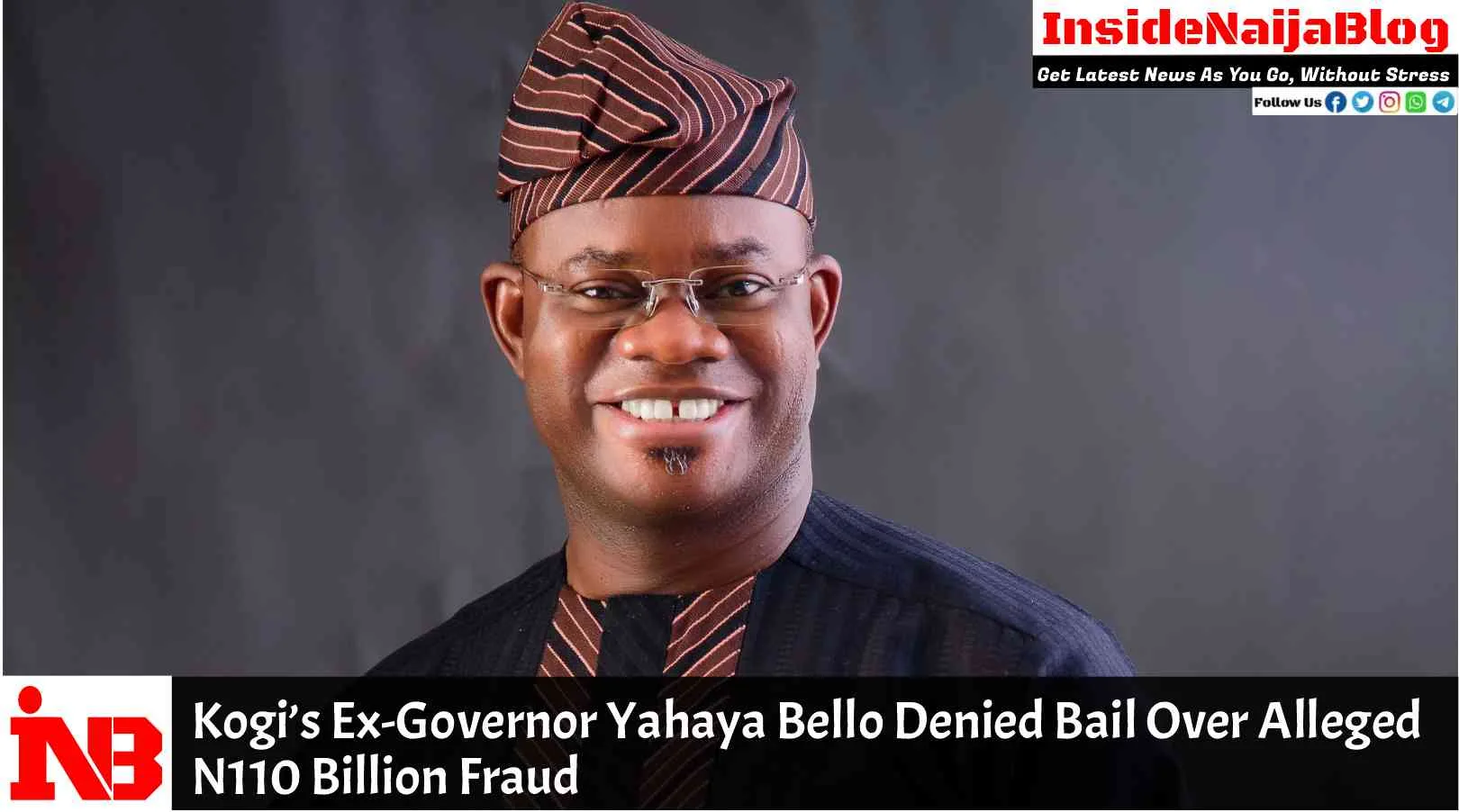The Federal Capital Territory High Court in Abuja has denied bail to Yahaya Bello, the immediate past Governor of Kogi State, who has been in detention since November 25. Justice Maryann Anenih ruled on Tuesday, describing Bello’s bail application as both premature and legally incompetent.
Why the Court Refused Bail
Justice Anenih explained that the former governor filed his application before officially surrendering to the Economic and Financial Crimes Commission (EFCC). This early filing, according to the judge, meant that Bello tried to invoke the court’s jurisdiction prematurely.
“Filing a bail application while not in custody undermines its legal foundation,” Justice Anenih said. Consequently, she dismissed the application but granted bail to the second defendant in the case, Umar Oricha, on stringent terms, requiring a bond of ₦300 million and two credible sureties. The court is still deliberating on the bail application of the third defendant, Abdulsalami Hudu.
Allegations Against Bello
Yahaya Bello, who governed Kogi State from 2016 to 2024, faces a 16-count charge of corruption, including conspiracy, criminal breach of trust, and possession of illegally acquired properties. The EFCC alleges that he embezzled ₦110 billion in public funds.
The charges accuse Bello of using state funds to acquire several high-value properties in Nigeria and abroad, including:
- No. 35 Danube Street, Maitama, Abuja (₦950 million).
- No. 1160 Cadastral Zone, Gwarimpa II, Abuja (₦100 million).
- A Dubai property worth over ₦1.4 billion.
- Additional properties in Wuse Zone 4 and Asokoro, Abuja, worth millions.
The EFCC further alleges that Bello transferred substantial sums of money—$570,330 and $556,265—to TD Bank in the United States and laundered ₦677.8 million through Bespoque Business Solution Limited.
EFCC’s Arguments Against Bail
The EFCC opposed the bail, arguing that Bello repeatedly evaded trial, even when summoned for a different case at the Federal High Court in Abuja. The commission’s lead counsel, Kemi Pinheiro (SAN), pointed out that Bello’s legal team filed the bail application five days before his arraignment, undermining its validity.
The prosecution urged the court to deny Bello bail, emphasizing that his release could obstruct justice and undermine the ongoing investigation.
Bello’s Defence
Through his counsel, Joseph Daudu (SAN), the ex-governor maintained his innocence, arguing that the charges are politically motivated. Bello asserted that his continued detention hampers his ability to prepare an effective legal defence.
His defence team reminded the court of the constitutional presumption of innocence until proven guilty. They urged the court to disregard EFCC’s claims of non-cooperation, insisting that Bello had always been willing to face the charges.
What’s Next?
The court has remanded all three defendants in EFCC custody until further notice. As the trial unfolds, attention will focus on whether Bello’s legal team can address the issues raised and secure his release.
This case serves as a significant test of Nigeria’s judicial system in holding high-profile individuals accountable for alleged financial misconduct.




